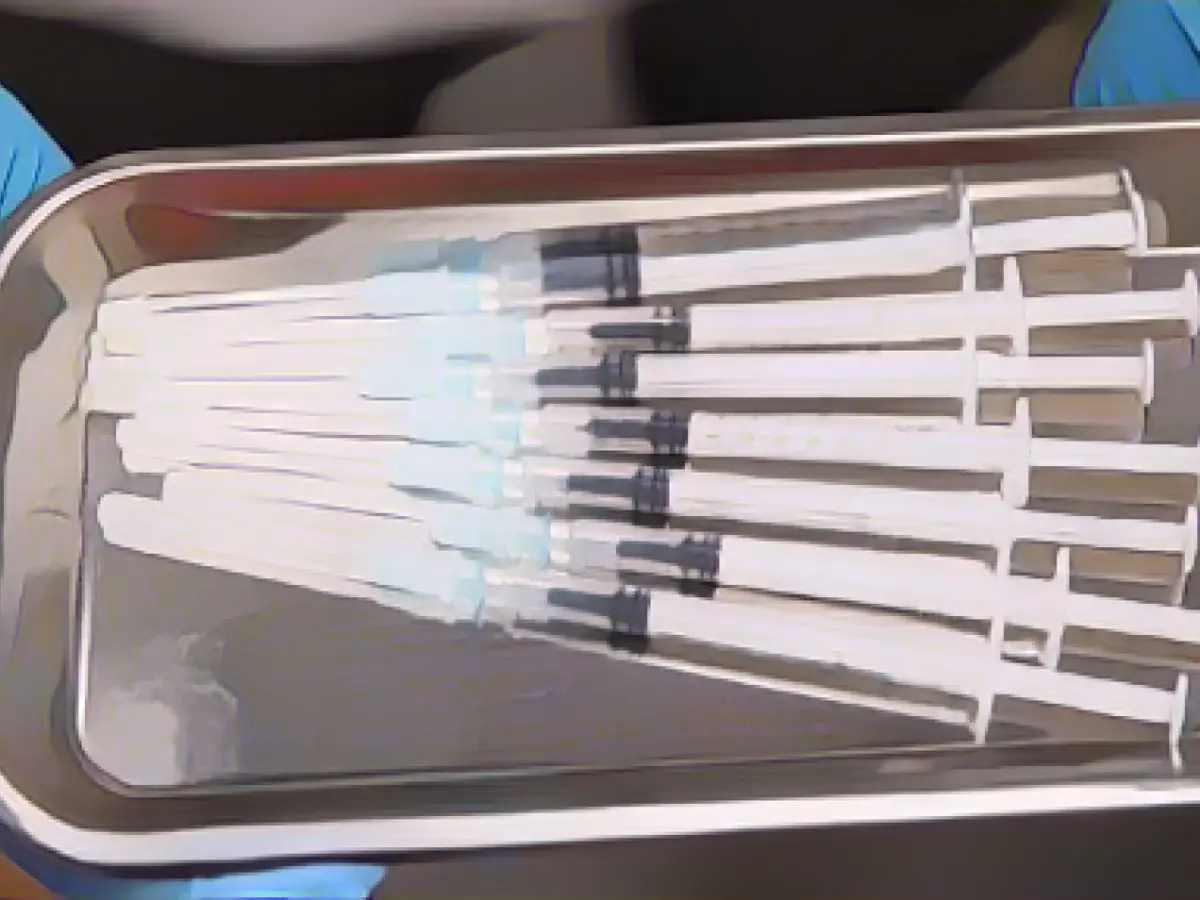Vaccine Injury Claim Hits a Roadblock in Rottweil Court
In a recent ruling, the Rottweil Regional Court dismissed a man's claim that the coronavirus vaccine produced by Biontech caused him severe damage, including almost complete blindness in his right eye. The plaintiff, a 58-year-old man, is seeking compensation of 150,000 euros and a declaration that he's entitled to further damages from the Mainz-based company. The court gave him one month to appeal the decision.
This isn't an isolated incident in Germany. Previously, various claims for vaccine damage have either been dismissed or are still under examination.
The court emphasized that a manufacturer is only liable for side effects if they exceed the overall benefits of the medication. Additionally, if the product leaflet does not adequately warn users about potential harmful consequences, the manufacturer could also be held responsible. However, neither of these conditions was met in this case, according to the court.
Recently, similar claims for damages against two other vaccine manufacturers were also dismissed in German courts. The Mainz-based Biontech and AstraZeneca were among the accused companies.
Fortunately, Germany has a system in place for affected individuals to seek compensation. They can turn to their respective pension offices, which review claims for benefits based on the severity of the health damage. Payments may include pension payments, medical treatment, and survivor benefits.
Vaccine Injuries and Reporting
Rare and severe adverse reactions to vaccines include heart disease, sinus vein thrombosis, facial paralysis, Guillain-Barré syndrome, and tinnitus. German law defines serious adverse reactions as incidents that are fatal or life-threatening, require hospitalization, result in permanent or severe disability, cause birth defects or congenital anomalies.
By the end of March, the Paul-Ehrlich-Institut had received 340,282 reports of suspected adverse reactions to COVID-19 vaccines. However, these reports do not necessarily indicate confirmed cases of harm. There were also 56,432 reports of suspected serious adverse reactions to COVID-19 vaccines, with 946 reports failing to specify the vaccine used.
In total, 192,208,062 COVID-19 vaccinations were administered in Germany, resulting in a reporting rate of 1.77 reports per 1000 vaccine doses.
Filing a Claim for Compensation
Individuals who believe they've suffered harm due to a COVID-19 vaccine can file a claim for compensation with their local pension office. Claims are evaluated based on the severity of the health damage, with potential benefits ranging from pension payments to medical treatment and survivor benefits.
Thousands of claims for compensation related to COVID-19 vaccines have been filed in Germany, with several hundred individuals receiving approval for these benefits.
Understanding Vaccine Liability in Germany
In Germany, liability for COVID-19 vaccine manufacturers is governed by a combination of national laws and EU directives. Notably:
- Product Liability Directive 2024/2853: This EU directive emphasizes manufacturers' responsibility for ensuring product safety, including vaccines.
- German Product Liability Law: Strict liability applies in Germany, meaning manufacturers are responsible for defective products and any harm they cause.
- Regulatory Compliance: Manufacturers must comply with regulations set by the EU and German authorities. Failure to comply increases liability.
- Adverse Event Reporting: Adverse events must be reported to ensure informed decision-making and liability assessments.
In summary, understanding vaccine liability in Germany requires a clear grasp of product liability directives, German product liability law, regulatory compliance, and adverse event reporting. Manufacturers must adhere to these rules to minimize liability for vaccine-related harm.
Sources:








